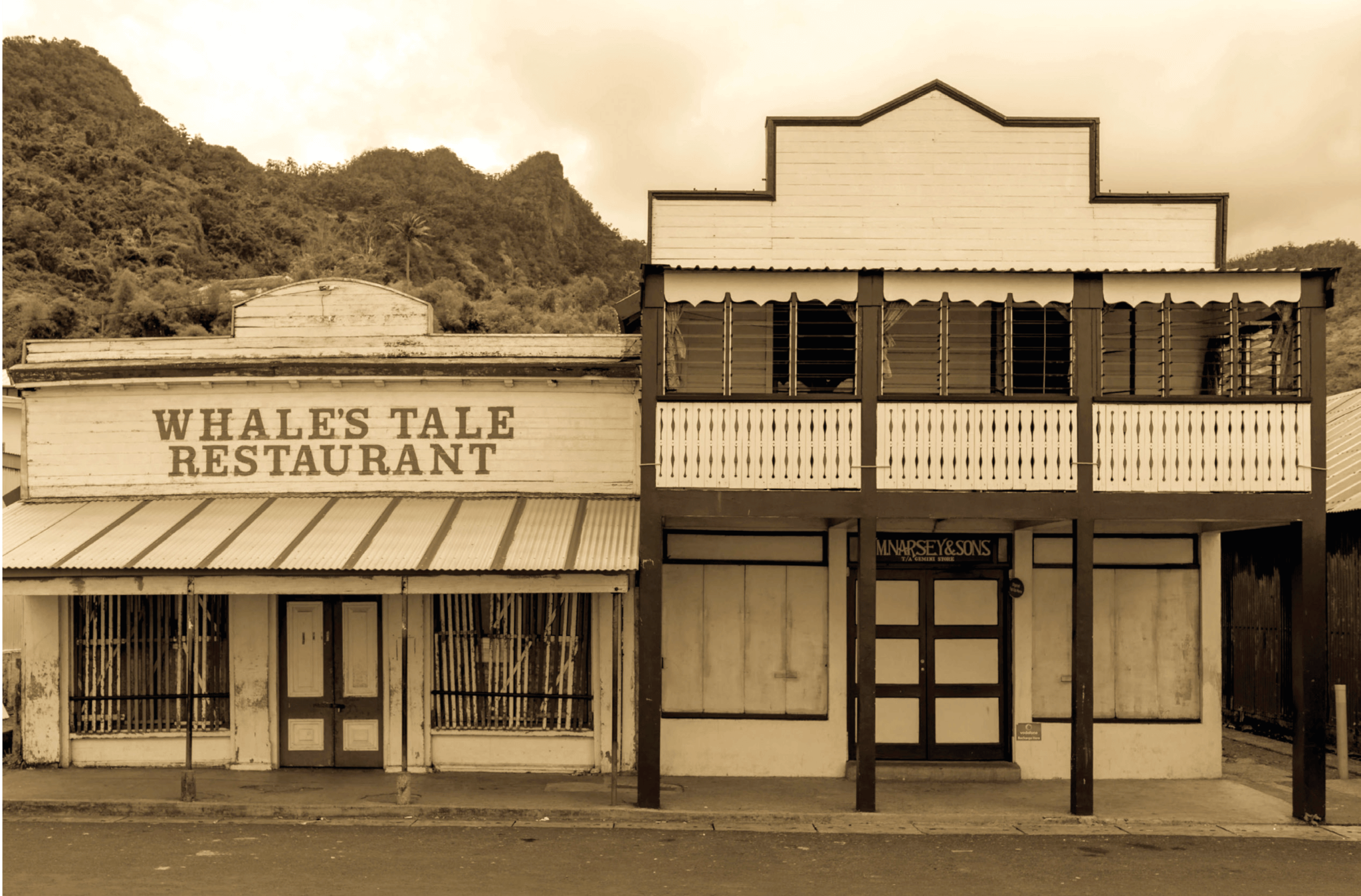Travel
Levuka: Fiji’s Captivating Old Capital
In 2013, UNESCO declared Levuka a World Heritage site as the best-preserved colonial port town in the South Pacific.
Craig Tansley discovers visiting Fiji’s first capital, is a journey through the centuries well worth the boat trip from the mainland.
August 15, 2023
Pacific Island Living
August 15, 2023It used to be you could fly in a small plane direct from Fiji’s capital, Suva, to Levuka, but now you’re going to have to work harder to get there.
The effort – be assured – is well worth it. You’ll take a bus from Suva to a small town on Viti Levu’s little-visited east coast, Natovi Landing, then take a ferry to Levuka. You can also catch a ferry direct from Suva, though it’ll take you longer on the sea.
Levuka’s tourism numbers used to be high enough to service a daily flight in and out of Suva. But since COVID-19 shut down Fiji’s international borders and, in the year or so since we’ve all been allowed back, no-one can say when – or even if – they’re likely to get the plane running again.
Home to colourful characters
Odd that Levuka is so seldom seen by outsiders like me – for it’s stunning, and it’s unique. Travelling here is like taking a time travel trip back through 150 years of South Pacific settlement, and seeing it now as it was then.
This was once Fiji’s capital, till 1877. It was a thriving, bustling port town – home to one of the most important ports in the entire South Pacific. It was the home to one of the more unusual collections of foreign traders, merchants, seamen and drifters anywhere in the Southern Hemisphere.
But its beautiful surroundings, ironically, were what held it back from becoming bigger. Levuka is dwarfed by stunning 500-metre-high mountains full of waterfalls. The sheerness of these surroundings made the Government of the day decide there was no room to expand Levuka, Suva became the capital instead, now it’s a city of 100 000.
Meanwhile, Levuka is locked in time – the late 1800s. Its tourism point of difference now is that it allows travellers an opportunity to see how life used to be in a much older version of Fiji. It’s the most intact remaining example of the colonial lifestyle anywhere in the South Pacific islands.

In 2013, UNESCO even made Levuka a World Heritage site as the best-preserved colonial port town in the South Pacific. It must have been a sight to see from the air on those earlier flights over from Suva, but I love my view from the ferry on the ride in. I cross a body of water where dolphins follow the vessel, then round a corner and see mid-19th century Catholic and Methodist missions, churches and schools built along the coast. The town of Levuka itself is really just one main street of 19th century stores painted in green, blue, yellow, purple and pink.
A town famous for its firsts.
There are no resorts in town – though if you really want to time-travel, you can stay in the oldest hotel in Fiji, The Royal Hotel, built 160 years ago. I prefer a home-stay run by the only ex-pats you’ll find in town, a transplanted Australian couple, who provide me with all the information I need to explore town.
While there are very few bars, restaurants or cafes – there’s still plenty to do in Levuka. There are hikes behind town which take you into the mountains where you can swim in waterholes and below seldom-visited waterfalls.
There are also historical tours you can take to understand the history of the place. These are organised by my homestay, using local worker, Noa Vueti. I take the only real taxi around town with Vueti to seek out the best vestiges of history.
“Levuka is famous for its firsts,” he tells me. “It has Fiji’s first bank, first post office, first school, first private member’s club, first hospital and first newspaper. A lot of our prime ministers went to school here.”
It’s like a museum, just being here. The architecture of Levuka’s historic buildings reflect different eras – Baroque, Victorian, Edwardian. To see it best, I take on the 199 steps up to Mission Hill for a bird’s eye view of the town.
How the Pacific was
Every building in Levuka has a story. I walk between them, up dirt roads surrounded by every kind of fruit tree in the Pacific. Just behind town is Levuka’s rugby field – where you come each weekend to see some of the most exciting games of Fiji’s national sport on offer. The whole island is here on game day – many players from here have gone on to make the national rugby squad.

Vueti’s tour might’ve stopped – but mine won’t the whole time I’m in Levuka. It’s a constant tour through the years. There’s a small museum in town but history is on display everywhere – in the old stores of the main road where shopkeepers maintain the tradition, in 150-year-old churches built by the sides of the water and in the old schools and other Government buildings scattered throughout.
There’s less of the beaches you expect in Fiji here – but just being here gives you an understanding of how the South Pacific once was, and will never be again.
How to get there
There are two trips each day between Suva and Levuka with Goundar Shipping, there’s no website so email goundarshipping@kidanet.com.fj and there are trips with Venu Shipping, email vsl@kidanet.net.fj
Stay at Levuka Homestay (they also have info on how to get there), check out levukahomestay.com
© 2024 Pacific Island Living Magazine all Rights Reserved
Website by Power Marketing